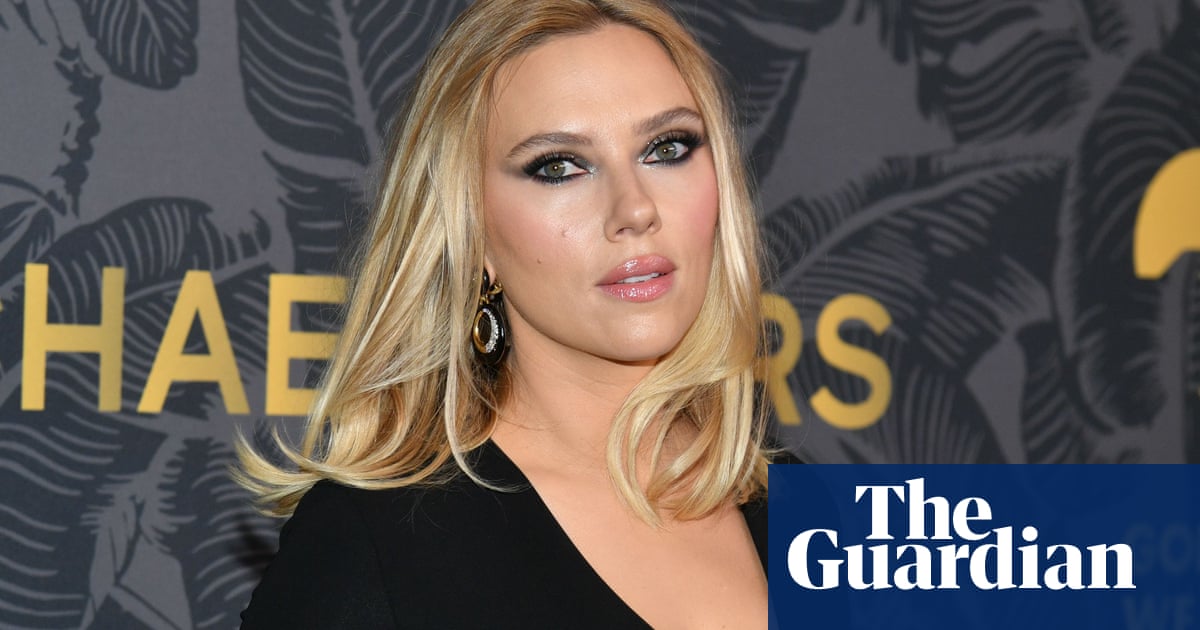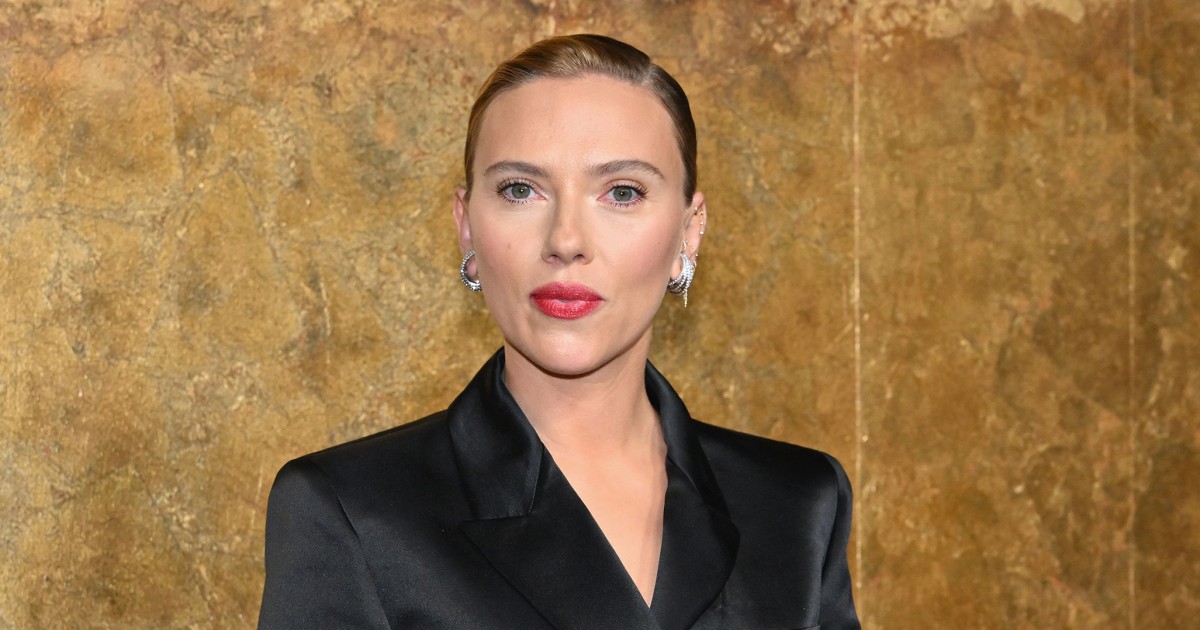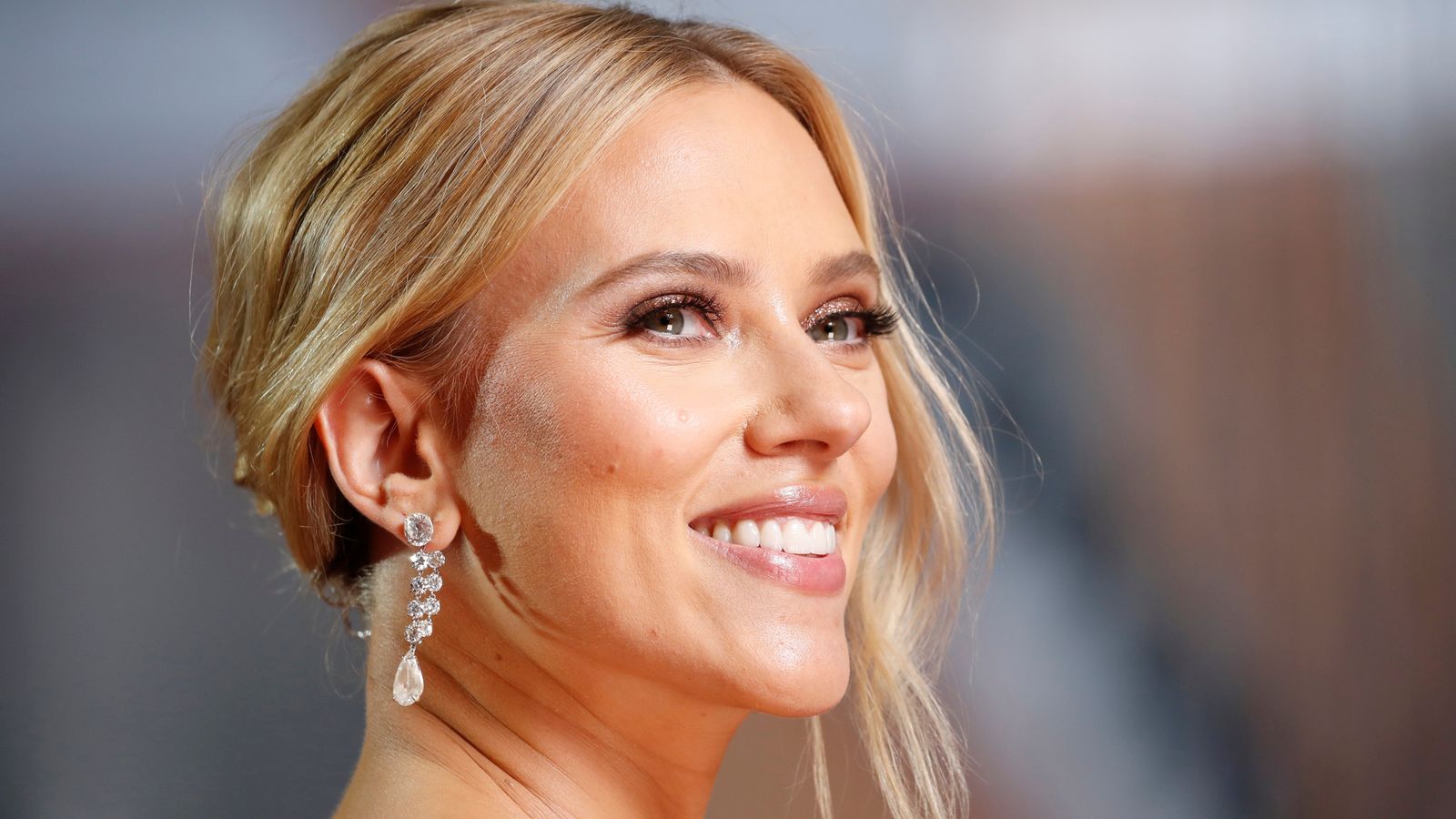Scarlett Johansson has taken legal action against an AI app developer for using her name and likeness in an online advertisement without her consent. This incident brought to light the ongoing concerns surrounding the unauthorized use of celebrities’ images and voices in the advancing field of artificial intelligence.

Also Read: Actor Matthew Perry, “Friends” Star, Dies at 54
The controversy revolves around a 22-second promotional video that was posted on various online platforms by an AI image editor known as Lisa AI: 90s Yearbook & Avatar.
In this advertisement, Scarlett Johansson initially appeared in behind the scenes footage while filming her famous role in the “Black Widow” movie, where she says, “What’s up guys? It’s Scarlett, and I want you to come with me.”
However, the ad quickly transitions away from the actress and introduces an AI-generated voice that attempts to mimic Scarlett Johansson, stating, “It’s not limited to avatars only.
You can also create images with texts and even your AI videos. I think you shouldn’t miss it.” The controversy does not stop there, as the ad included a disclaimer at the bottom, explicitly stating, “Images produced by Lisa AI.
It has nothing to do with this person.” This disclaimer, while present, may not have been sufficient to protect Scarlett Johansson’s image and reputation.
Representatives for Scarlett Johansson immediately clarified that the actress had no association with the Lisa AI app and had never endorsed it in any capacity.
Her attorney, Kevin Yorn, took the matter into his hands to protect her rights and image in this case. Yorn stated, “We do not take these things lightly.
Per our usual course of action in these circumstances, we will deal with it with all legal remedies that we will have.”
This declaration made it clear that they intended to pursue legal action against the developers of the Lisa AI app for their unauthorized use of Scarlett Johansson’s name.
Also Read: Killers of the Flower Moon Review: A Masterpiece by Martin Scorsese
This incident raises legal and ethical questions about the use of artificial intelligence technology to create representations of individuals, especially celebrities, for advertising and promotional purposes.
Scarlett Johansson’s case is not the only case, as numerous celebrities have had their names and images misused in AI-generated content without their consent.
Tom Hanks, another well-known actor, recently faced a similar situation when an AI-generated video featuring him in a dental plan advertisement circulated online.
In response, Hanks warned his fans that he had no involvement in the promotion and said that the AI-generated content was unauthorized.
The unauthorized use of a celebrity’s name, image, voice, or likeness for advertising and promotional purposes is a legal issue that varies from one jurisdiction to another.
In the United States, where many celebrities reside and work, the right to privacy and publicity is a legal concept.
California, in particular, has privacy laws, allowing individuals to sue for the unauthorized use of their name, voice, image, or likeness for advertising or promotions.
This legal framework gives celebrities a tool to protect their public image and financial interests. In Scarlett Johansson’s case, her legal action is likely to rely on California’s right of publicity laws.
Also Read: UK AI Safety Summit: 28 Countries Agree to the Bletchley Declaration
These laws prohibit the use of a person’s identity for commercial gain without their permission. The intent behind these laws is to safeguard an individual’s right to control their own image and prevent unauthorized exploitation of their persona for financial gain.
Scarlett Johansson’s lawsuit could have far-reaching implications for how AI-generated content is used in advertising.
By taking legal action, she aims to protect not only her own rights but also to establish boundaries for the use of AI technology in the advertising industry.
Artificial intelligence has made advancements in recent years, particularly in the field of deep learning and generative models.
These technologies have the capability to create highly realistic content, including images, videos, and even voices that can mimic real individuals.
While these advancements have many applications, they also come with ethical and legal challenges. One of the main concerns is misuse, as illustrated by the cases of Scarlett Johansson and Tom Hanks.
Unauthorized use of AI-generated content that impersonates celebrities can mislead the public, damage reputations, and blur the lines between reality and fiction.
Additionally, such misuse can have financial consequences for the celebrities involved, as their image and endorsement deals are valuable assets.
The speed at which AI technology is advancing means that these challenges will continue to grow. It is important for society to address these issues and establish clear guidelines and regulations for the use of AI-generated content, especially in advertising and promotion.
Also Read: LinkedIn Hits 1 Billion Members, Adds AI Job Search Tools



/cdn.vox-cdn.com/uploads/chorus_asset/file/25050994/1739730145.jpg)


















